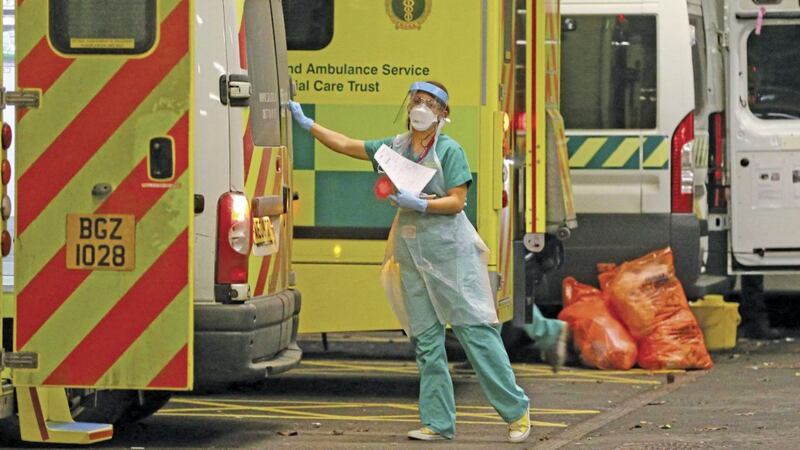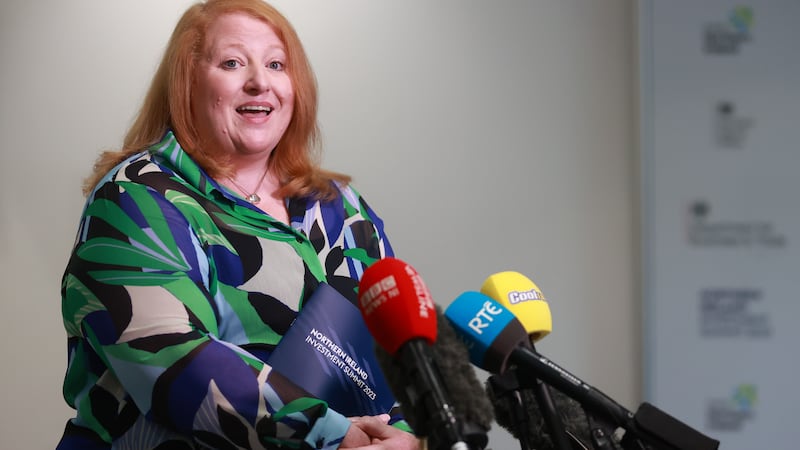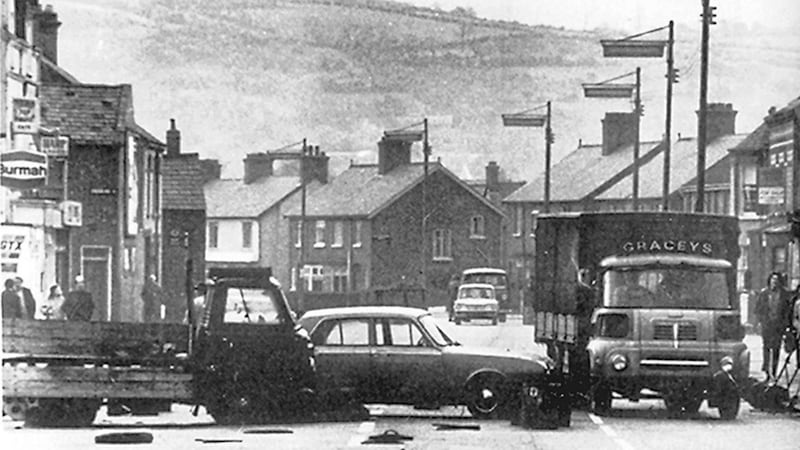WARNINGS by doctors of "nightmare" January scenarios for Northern's Ireland health service have come to pass as we enter into a third Covid wave.
For a system already on its knees prior to the pandemic, where 24-hour A&E trolley waits and burnt-out staff became the norm, the admission of hundreds of coronavirus patients has now left hospitals at a dangerous tipping point.
A total of 577 Covid patients were being treated yesterday - of which 45 were in ICU. Meanwhile, just 15 intensive care beds were available across the north's hospitals for the most seriously ill, including heart attack patients and car crash victims.
With the time lag between someone testing positive and becoming unwell, it is inevitable that frontline workers are heading into the storm over coming weeks due to soaring infection rates following the relaxation of restrictions before Christmas.
Case numbers are hitting record highs, with parts of Co Armagh even overtaking a local authority in Wales to become a UK blackspot earlier this week.
On Monday evening, when stringent lockdowns were announced for England, Scotland and Wales, the north's First Minister Arlene Foster would not be drawn on "details" but confirmed the extension of remote learning for schoolchildren and reinforcement of the stay at home message.
A few hours after Ms Foster made her comments, police land rovers were photographed outside a house in north Belfast where there were reports of a party taking place.
Just days earlier, huge crowds gathered in Portrush and Portstewart after the week-long 'curfew' came to an end.
What has been a feature of the pandemic is the knee-jerk or reactive responses by political leaders to the unfolding crisis.
While they have repeatedly told the public it is "in their hands" to change the course of the outbreak - and it undoubtedly is - the lack of planning and poor messaging at key points are a damning indictment of the Stormont administration.
The disastrous under-estimate for the level of outbreak at the beginning of October - when rates rose by 300 per cent - was blamed by the Public Health Agency for its utter lack of preparedness in terms of staffing.
However, when an independent inquiry finally does take place, critical questions must be asked as to what level of planning was carried out last summer - when the north had one of the lowest coronavirus rates in Europe - and at a time when senior health officials knew what was coming down the tracks.
As school doors shut and police receive more enforcement powers, decision making at the top must improve to restore public confidence.
During the first wave, fear amid warnings about deaths of "biblical proportions" drove everyone into a harsh lockdown that was - for the most part - obeyed.
Ten months on, with a crippled economy and fatigued society, we're in a very different place. While the vaccines offer the only chink of light, concerns about the rollout have already been raised in recent days by senior medics.
It is absolutely in the hands of individuals to bear down and obey the rules. But real political leadership, pro-active planning and strong messaging are also central to getting us through the fire over coming months.








